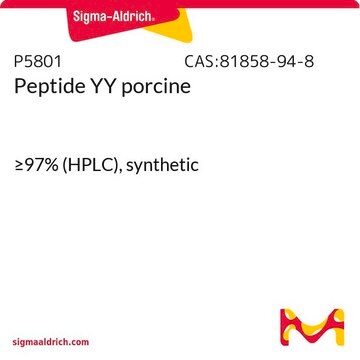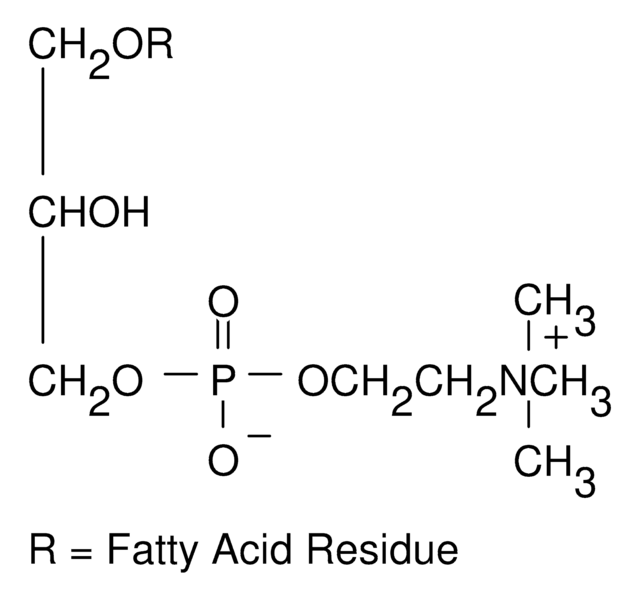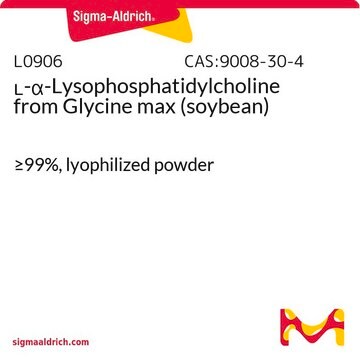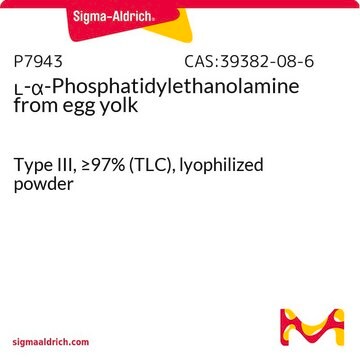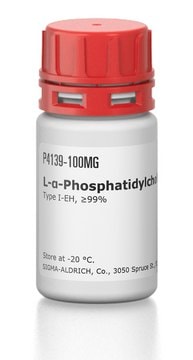P7443
L-α-Phosphatidylcholine
from soybean, ≥99% (TLC), lyophilized powder
Synonym(s):
1,2-Diacyl-sn-glycero-3-phosphocholine, 3-sn-Phosphatidylcholine, L-α-Lecithin, Azolectin, PC
About This Item
Recommended Products
biological source
soybean
Quality Level
Assay
≥99% (TLC)
form
lyophilized powder
functional group
phospholipid
lipid type
phosphoglycerides
shipped in
ambient
storage temp.
−20°C
SMILES string
[P](=O)([O-])(OC[C@H](OC(=O)CCCCCCC\C=C/C\C=C/CCCCC)COC(=O)CCCCCCCCCCCCCCC)OCC[N+](C)(C)C
InChI
1S/C42H80NO8P/c1-6-8-10-12-14-16-18-20-21-23-25-27-29-31-33-35-42(45)51-40(39-50-52(46,47)49-37-36-43(3,4)5)38-48-41(44)34-32-30-28-26-24-22-19-17-15-13-11-9-7-2/h14,16,20-21,40H,6-13,15,17-19,22-39H2,1-5H3/b16-14-,21-20-/t40-/m1/s1
InChI key
JLPULHDHAOZNQI-ZTIMHPMXSA-N
Looking for similar products? Visit Product Comparison Guide
General description
Application
- for liposome preparation
- as a component of stabilizer solution for preparing dispersed curcuminoid submicron particle (CSP)
- as a component of serum free substitute for whole blood cells
Biochem/physiol Actions
Packaging
Preparation Note
Storage Class Code
11 - Combustible Solids
WGK
WGK 1
Flash Point(F)
Not applicable
Flash Point(C)
Not applicable
Personal Protective Equipment
Choose from one of the most recent versions:
Certificates of Analysis (COA)
Don't see the Right Version?
If you require a particular version, you can look up a specific certificate by the Lot or Batch number.
Already Own This Product?
Find documentation for the products that you have recently purchased in the Document Library.
Customers Also Viewed
Our team of scientists has experience in all areas of research including Life Science, Material Science, Chemical Synthesis, Chromatography, Analytical and many others.
Contact Technical Service
